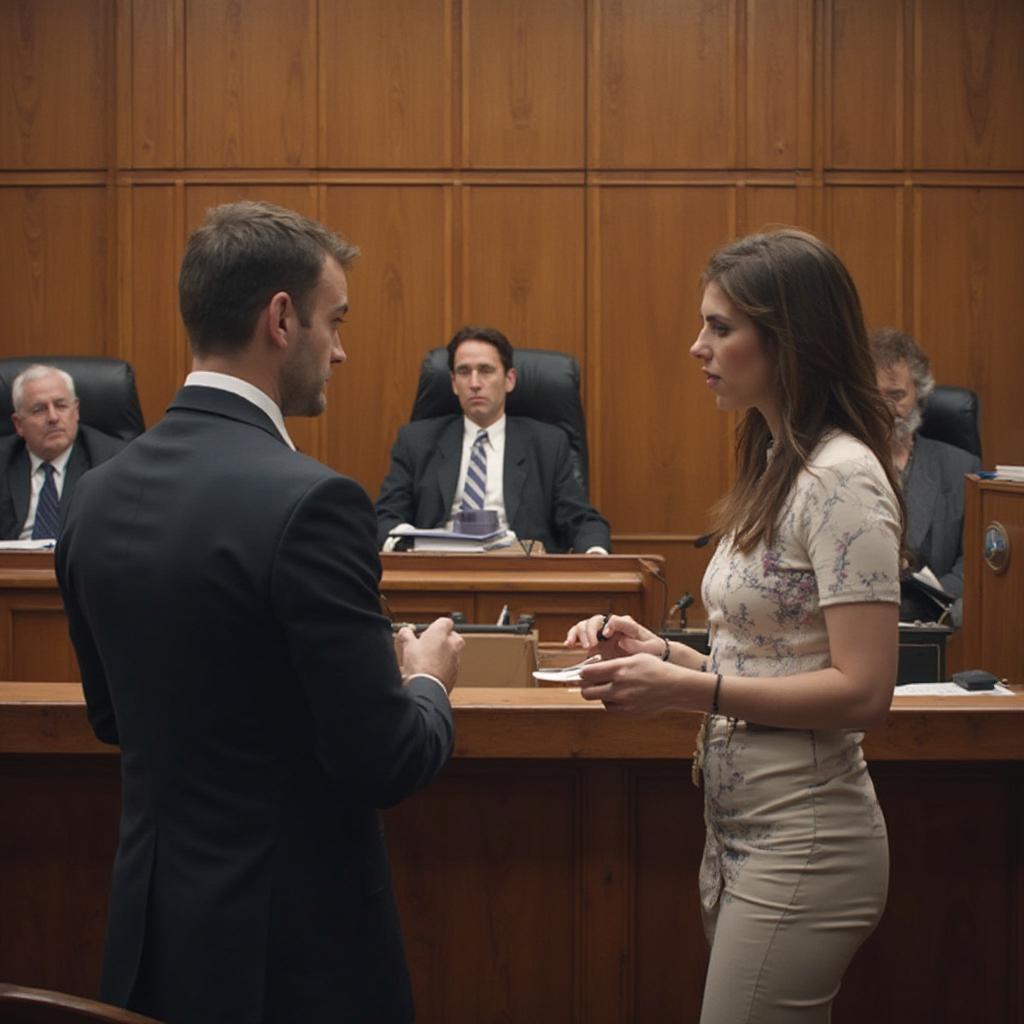
Can a Lawyer Quit a Case?
When facing legal challenges, having a reliable attorney is crucial. But what happens if your lawyer wants to quit your case? Understanding the circumstances under which a lawyer can withdraw is essential for both clients and legal professionals. This article explores the intricacies of lawyer withdrawal, focusing on the legal and ethical considerations involved.
Similar to what questions to ask divorce lawyer during consultation, understanding the intricacies of lawyer-client relationships is crucial for a smooth legal process. Attorneys are bound by professional rules and ethical obligations that govern their conduct, including when and how they can withdraw from representing a client. While lawyers have a right to withdraw under certain circumstances, they also have a duty to protect their clients’ interests. This delicate balance is at the heart of the question, “Can a lawyer quit a case?”
When Can a Lawyer Withdraw from a Case?
There are several situations where a lawyer is permitted, and sometimes even required, to withdraw from a case. These reasons generally fall into two categories: mandatory withdrawal and permissive withdrawal.
Mandatory Withdrawal
Mandatory withdrawal occurs when continuing to represent the client would violate ethical rules or the law. For instance, a lawyer must withdraw if continuing the representation would require them to commit a criminal or fraudulent act. Similarly, if a lawyer develops a conflict of interest that cannot be resolved, they must withdraw. This is often the case when a lawyer discovers they have previously represented the opposing party in a related matter.
Permissive Withdrawal
Permissive withdrawal allows a lawyer to withdraw even if there’s no ethical violation, provided it doesn’t harm the client’s interests. Common reasons for permissive withdrawal include:
- Client’s failure to pay fees: If a client consistently fails to pay agreed-upon fees, a lawyer can usually withdraw after providing proper notice.
- Client’s illegal or unethical conduct: A lawyer may withdraw if the client insists on pursuing a course of action the lawyer believes is illegal or unethical, even if it wouldn’t require the lawyer to directly participate in the illegal or unethical act.
- Irreconcilable differences: If the lawyer-client relationship has deteriorated to the point where effective communication and cooperation are impossible, the lawyer may withdraw. This can stem from personality clashes, loss of trust, or fundamental disagreements about strategy.
How Does a Lawyer Withdraw from a Case?
The process of withdrawing from a case involves several steps designed to protect the client’s interests. First, the lawyer must formally notify the client of their intent to withdraw, usually in writing. This notification should explain the reasons for withdrawal and provide the client with reasonable time to find new counsel. The lawyer must also obtain permission from the court to withdraw. This usually involves filing a motion to withdraw with the court and serving a copy on the client and opposing counsel. The court will then consider the motion and decide whether to grant it. If the motion is granted, the lawyer is relieved of their duties, and the client must find new representation.
As with the question of do i need a lawyer for custody, understanding the legalities of withdrawing from a case is vital for both lawyers and their clients. The court may deny the motion to withdraw if it finds that withdrawal would unfairly prejudice the client, particularly if the case is close to trial. In such cases, the lawyer may be required to continue representing the client until a suitable replacement can be found or the case is concluded.
 Court Hearing Lawyer Withdrawal
Court Hearing Lawyer Withdrawal
What Happens After a Lawyer Withdraws?
After a lawyer withdraws, the client is responsible for finding new legal representation. The former lawyer must cooperate in the transition by providing the new lawyer with all relevant case files and information. This ensures continuity in the client’s representation and minimizes any disruption to the case. If the client fails to secure new counsel within a reasonable time, the court may proceed with the case, potentially without the client having legal representation.
Just like the importance of understanding can one lawyer represent both parties in a divorce, knowing the procedures when a lawyer withdraws is crucial. It’s important to note that even after withdrawing, a lawyer is still bound by confidentiality obligations regarding information learned during the representation.
Protecting Your Interests
If your lawyer seeks to withdraw from your case, it’s important to understand your rights and take steps to protect your interests. Communicate with your lawyer to understand the reasons for withdrawal and ask any questions you may have. Seek advice from another lawyer if you have concerns about the withdrawal or need help finding new representation. Keep detailed records of all communications and documents related to the withdrawal.
Similar to new york lawyer chatgpt, finding a qualified and reliable lawyer is essential. Understanding the legal and ethical framework surrounding lawyer withdrawal empowers clients to navigate these challenging situations effectively. By understanding the reasons for withdrawal, the withdrawal process, and the implications for your case, you can ensure your legal rights are protected.
 Client Meeting New Lawyer
Client Meeting New Lawyer
Conclusion
Understanding when and how a lawyer can quit a case is crucial for both clients and legal professionals. The rules governing lawyer withdrawal are designed to balance the lawyer’s right to withdraw with the client’s right to effective representation. By understanding these rules, clients can protect their interests and ensure a smooth transition if their lawyer withdraws. Remember to communicate openly with your lawyer, seek a second opinion if needed, and take an active role in protecting your legal rights.
FAQ
-
Can a lawyer quit a case without reason? No, a lawyer cannot simply quit a case without a valid reason, especially if it would harm the client.
-
What should I do if my lawyer wants to quit my case? Communicate with your lawyer to understand the reasons and consult another lawyer for advice.
-
Can I sue my lawyer for quitting my case? You can sue if the lawyer’s withdrawal was improper and caused you harm, but this can be complex.
-
How long does a client have to find a new lawyer after their previous lawyer withdraws? The court will typically grant a reasonable timeframe, depending on the specific circumstances of the case.
-
Can a lawyer withdraw right before trial? While rare, a lawyer may be permitted to withdraw close to trial under exceptional circumstances, but they must demonstrate compelling reasons to the court.
-
What happens if I can’t afford a new lawyer after my previous lawyer withdraws? Explore options like legal aid organizations or pro bono services.
-
Does a lawyer still owe me confidentiality after withdrawing from my case? Yes, attorney-client confidentiality continues even after the lawyer-client relationship ends. It’s crucial for clients to understand the complexities of this matter. Similar to what are the benefits of being a lawyer, understanding the ethical obligations of a lawyer is important for both clients and aspiring legal professionals.




